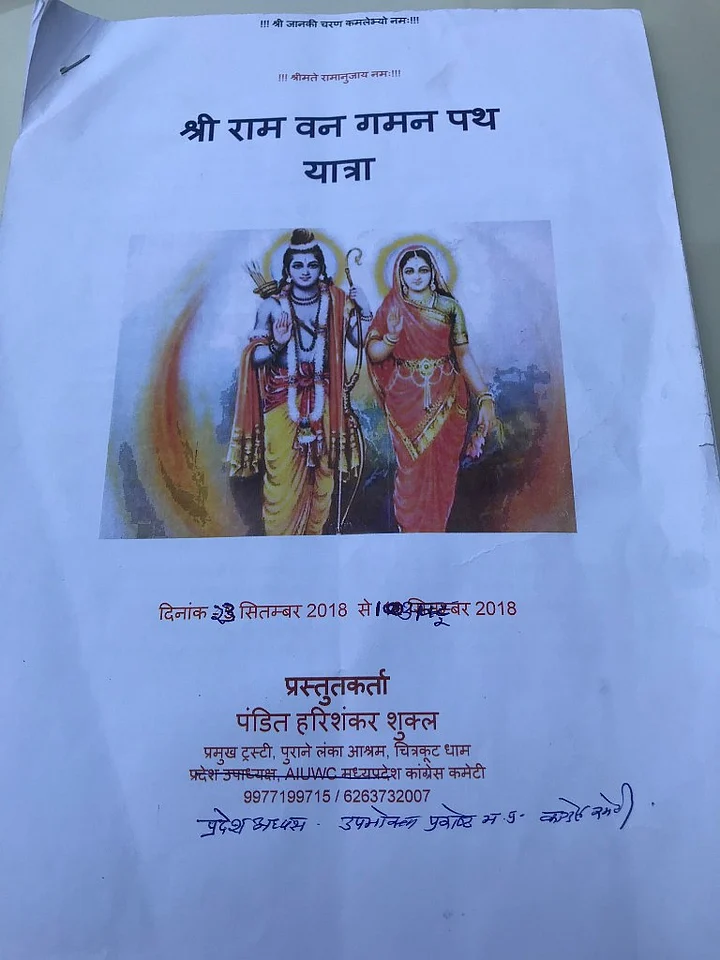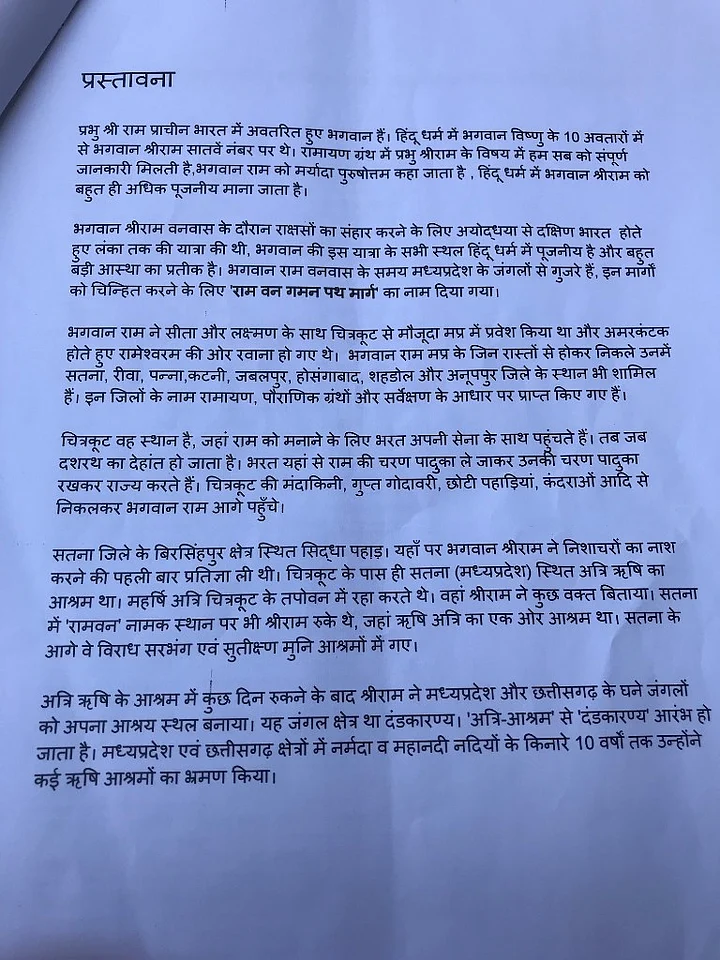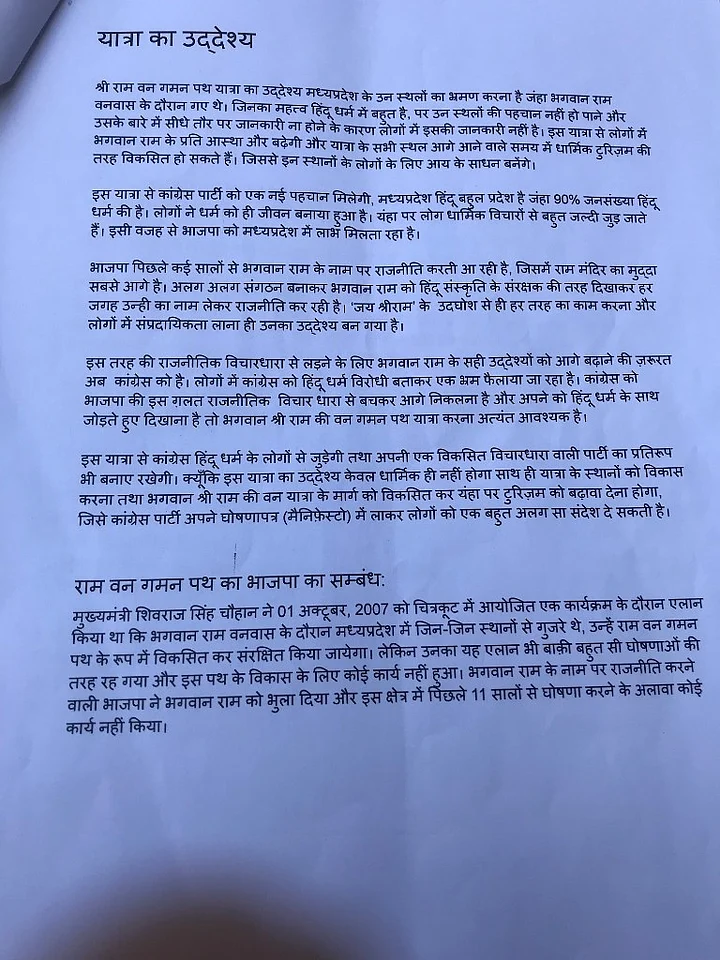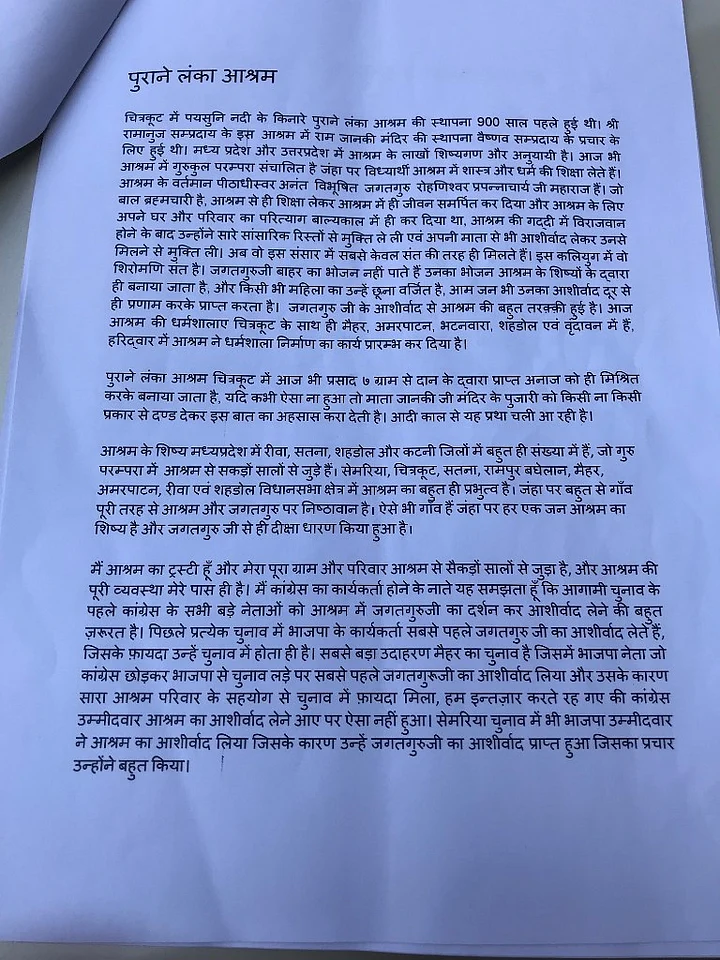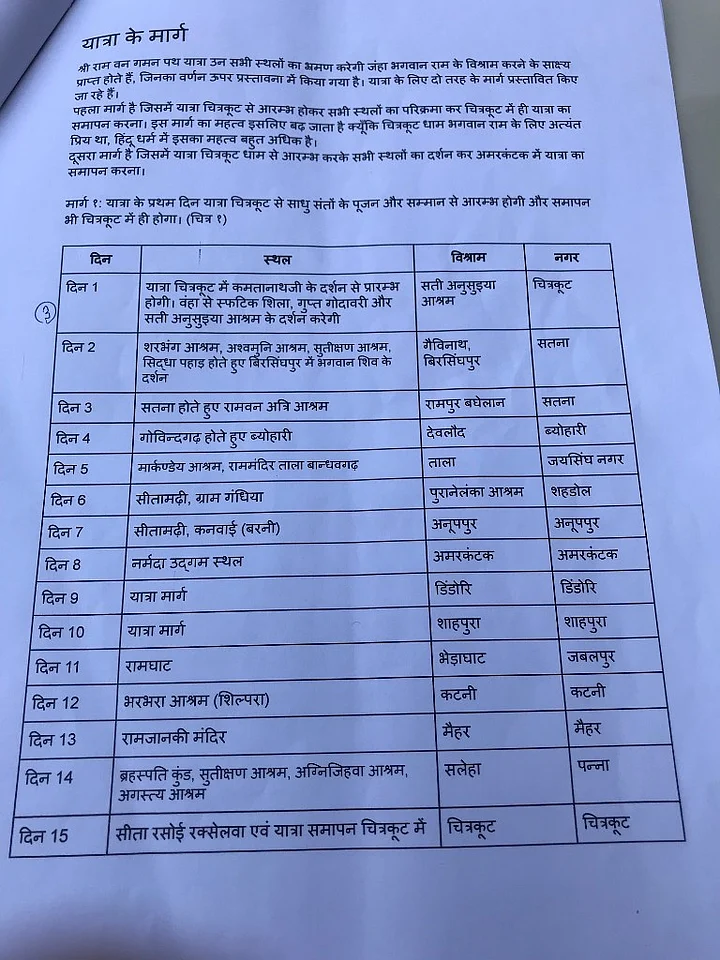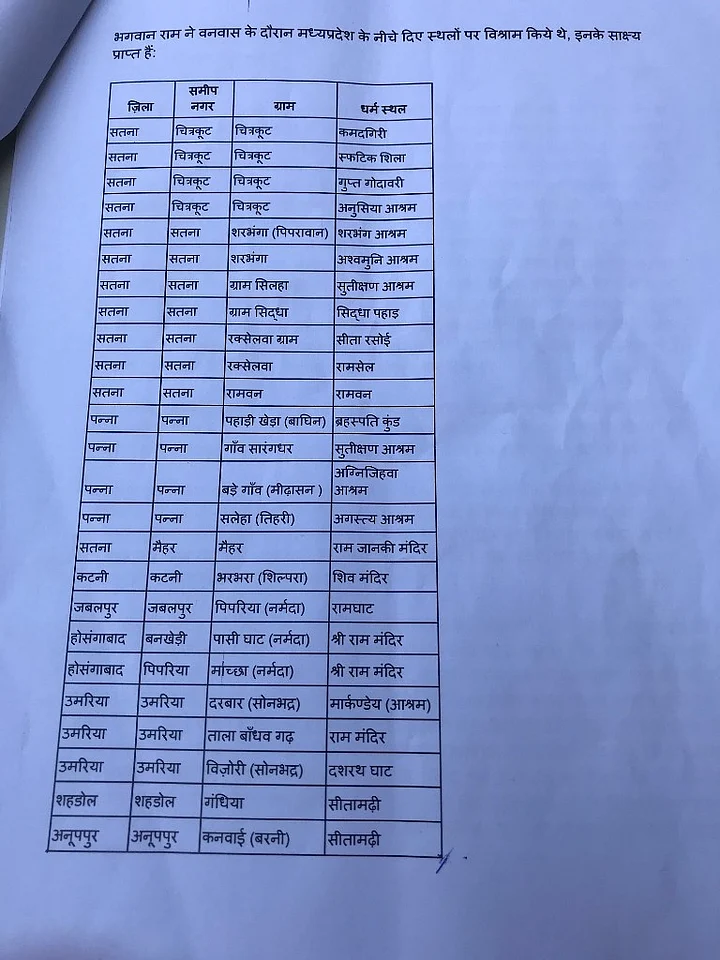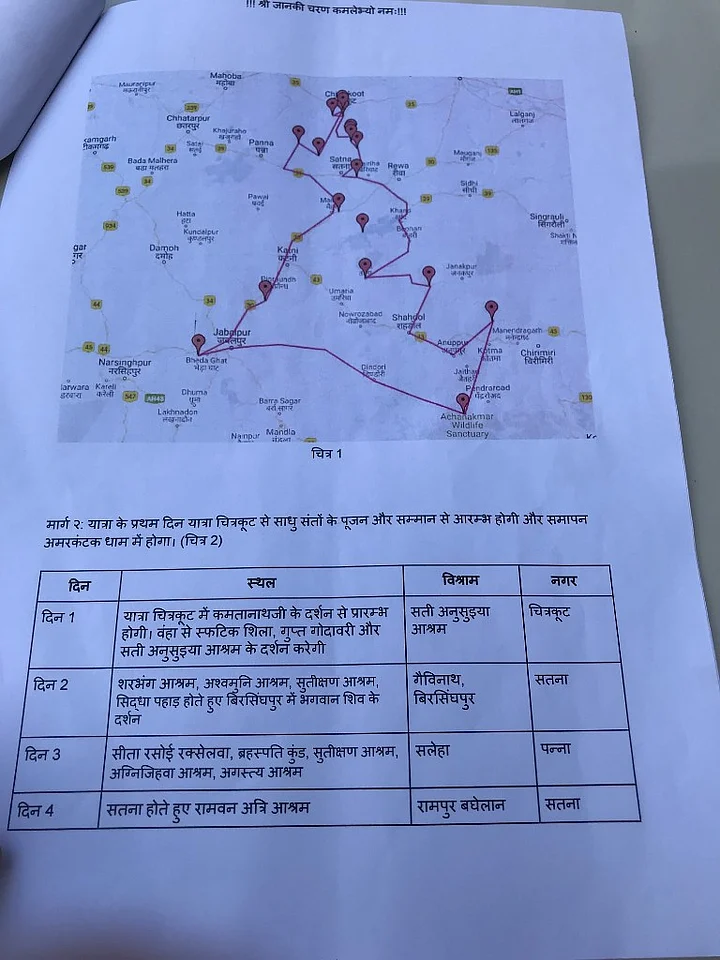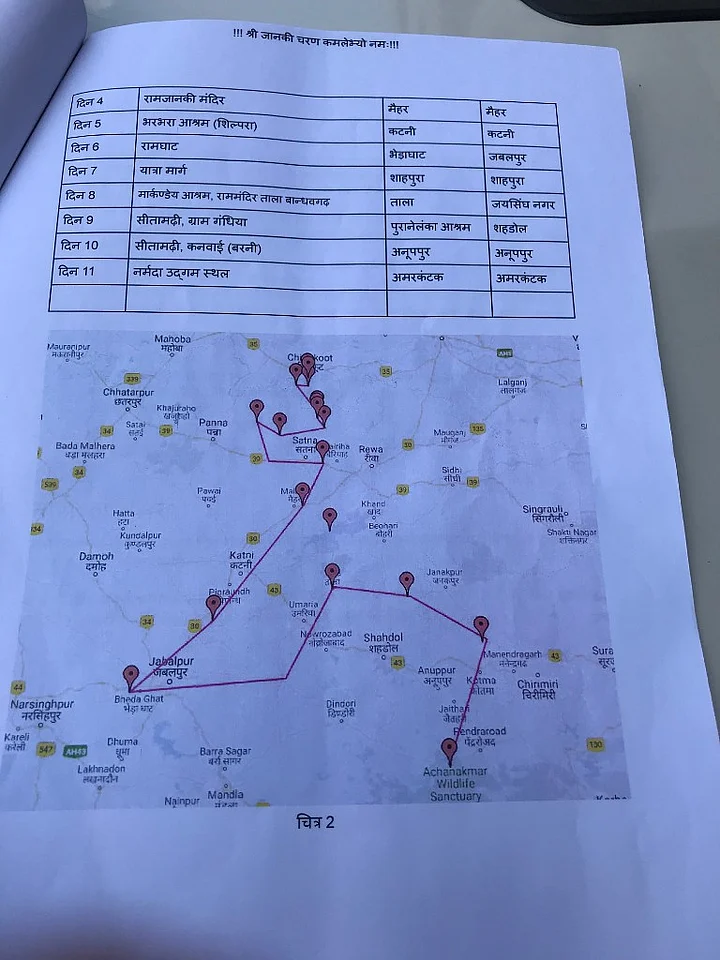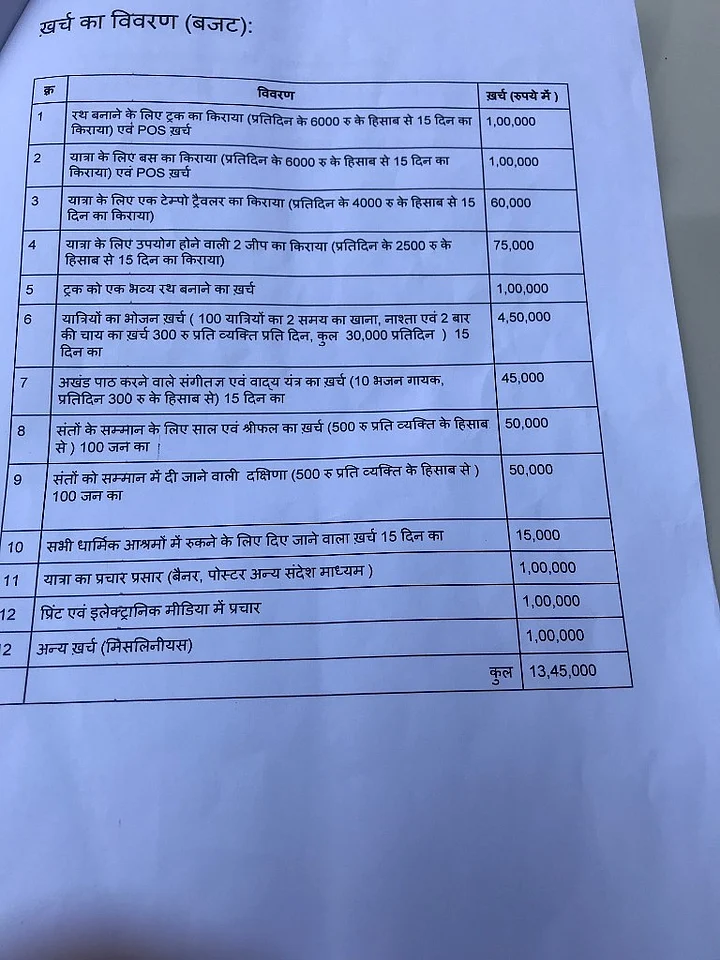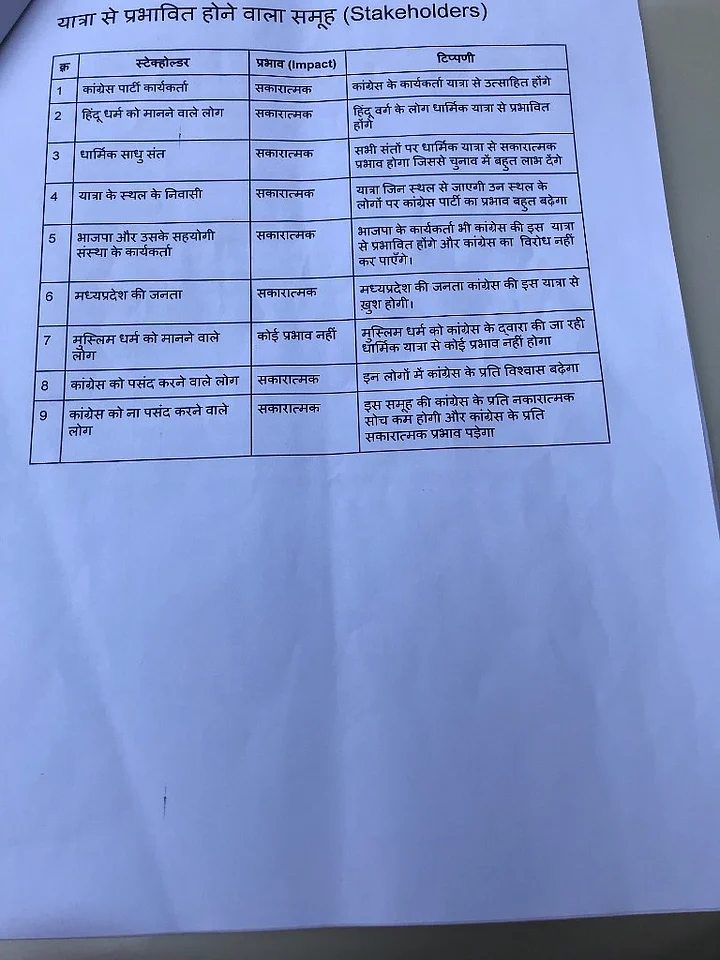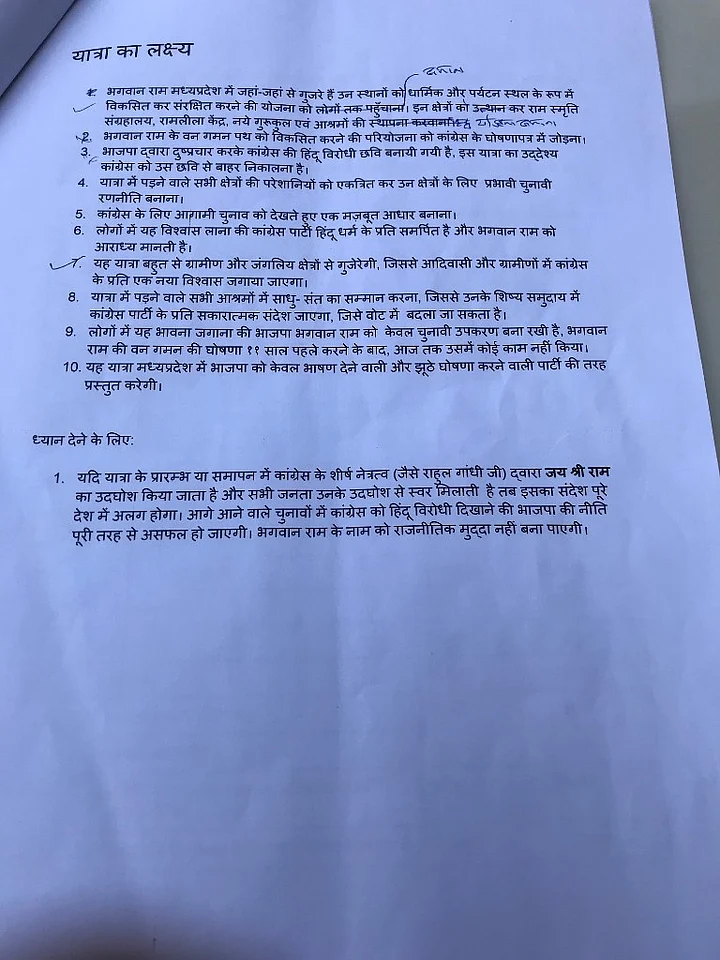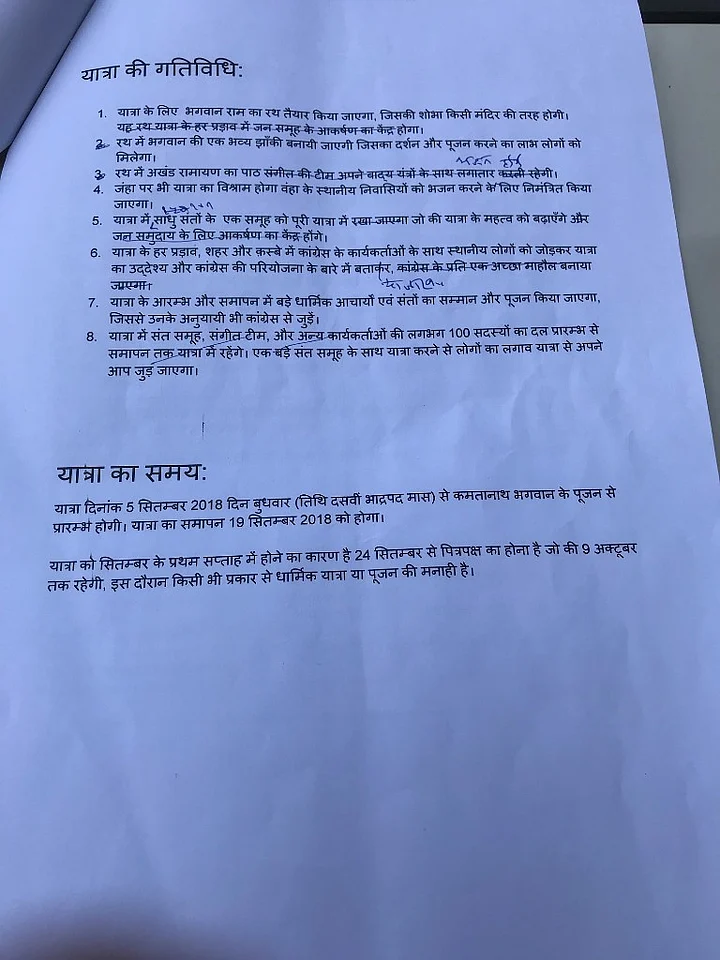A proposal by the chief architect of the Ram-Path-Van-Gaman-Yatra, the Congress’s latest Hindutva offering in poll-bound Madhya Pradesh, openly calls for embracing Hindutva and possibly, even getting Congress President Rahul Gandhi to chant “Jai Shri Ram”, the BJP’s Hindutva hail.
It says, if at the beginning or the conclusion of the yatra the senior leadership of the Congress (like Rahul Gandhi) raise the slogan of Jai Shri Ram, people will be likely to join the chorus and this message will resonate across the country. This is proof of an emerging political philosophy within the Congress party.
Congress, which started mainstreaming its ‘soft saffron’ strategy with the Gujarat and Karnataka elections, is now openly practicing and perfecting its own brand of subtle Hindutva.
And what’s unfolding in Madhya Pradesh with manifesto proposals like building a Ram Path to honour the mythical route of Lord Ram’s exile, is an intended intensification of the party’s ongoing experiments.
The Ram Path Yatra which was all set to begin on 23 September stands postponed for now, but the party says the yatra is still on and coming soon.
But perhaps for the first time a written document, that is, a 12-page proposal authored by the architect of the yatra, Congress Leader Harishankar Shukla, defines in detail the political design.
- 01/12

- 02/12

- 03/12

- 04/12

- 05/12

- 06/12

- 07/12

- 08/12

- 09/12

- 10/12

- 11/12

- 12/12

At a press conference on 13 September at the Congress’s state headquarters in Bhopal, Spokesperson Shobha Oza introduced Pandit Harishankar Shukla as the head of a 33-member committee called Ram Van Gaman Path Yatra Samiti that will steer the 820 kilometer yatra touching more than 30 places of religious importance.
The Yatra Proposal
The Quint has accessed the original draft of the proposal authored by Shukla that explains exactly how the Congress should approach Hindutva in Madhya Pradesh. It begins with a statement of purpose which says “Is yatra se Congress party ko nayee pehchaan milegi” (the Congress will acquire a new identity because of this yatra).
The proposal says that in a state like Madhya Pradesh which has a predominantly Hindu demographic, religion dictates the lives of people. It suggests that the Ram Yatra will bring the Congress up to speed with the BJP’s brand of Hindutva. Shukla proposes “Logon main Congress ko hindu dharm virodhi batakar bhram failaya jaa raha hai. (Confusion is being spread among people by portraying the Congress as being anti-religion.)
Shukla says that for the Congress to counter the BJP’s ‘wrong’ narrative, it is absolutely necessary (atyant avashyak) for the party to embark on the yatra and positively align itself to Hindu religion. The proposal hard-sells the yatra as a progressive strategy. The yatra, it says, “will help the Congress connect with Hindus and at the same time preserve its image of a party that has a progressive ideology”.
The Yatra’s Impact Assessment
What’s also startling is that in his impact assessment of the yatra, Shukla presents a matrix of stakeholders who will be influenced by this experiment. These stakeholders include Congress party workers, believers of the Hindu faith, godmen, people living along the route of the yatra, the BJP and its affiliates, Muslims of Madhya Pradesh, traditional supporters of the party and those who dislike the Congress.
The matrix conveys the impression of a political masterstroke, a win-win for the party and states, that it will have no impact whatsoever on the Muslim community and it will rather, positively influence saints and seers who will help the Congress in the elections.
It categorically concludes that Muslims who have conventionally supported the Congress will remain unaffected by this yatra.
Aim of the Yatra
Besides boosting the state’s tourism potential, the proposal summarizes what the yatra hopes to achieve politically:
- To counter the BJP’s campaign, and to brand the Congress as anti-Hindu
- To gather all the issues and problems of the places and devise an effective political strategy for the party for those areas
- To build confidence among the people that the Congress party is devoted to Hinduism and holds Lord Ram in high regard.
- To pass through many rural and tribal areas which will help the congress inspire new confidence in the people of these areas.
- To honour various godmen in ashrams which will send a positive message to their followers and influence their voting behavior
These clearly-stated political objectives were skipped at the party’s 13 September press conference where the yatra was primarily showcased as the Congress’s grand idea to revive temple tourism in the state and build an employment ecosystem around it.
Why Take Shukla’s Proposal Seriously?
Critics may argue that Shukla’s written proposal is a hurriedly-prepared amateurish document presented to secure an instant buy-in of the Congress leadership. But Shukla is now leading the yatra preparations as chief of the committee. He says he handed over his proposal for the yatra roadmap to the MP Congress Chief Kamal Nath on 21 August.
When The Quint questioned Shukla about his proposal, he defended his document by calling it a “good proposal”.
“My party’s president’s (Kamal Nath’s) understanding isn’t fully correct.” Kamal Nath he says, is of the view that “we should not link religion to politics. He does not want to do it for vote-bank politics.”
Shukla is hopeful that at some stage during the 19-day yatra, Rahul Gandhi will join the procession. He says his efforts are on to “make it happen”. Shukla credits the Congress for mainstreaming Ram in India’s politics. He says people have wrongly criticised Rahul Gandhi’s temple visits and his latest Manasarovar yatra. “It is because of Rajiv Gandhi ji that prayers first started where Ram Lalla (Infant Lord Ram) was virajmaan (seated) behind locked doors. It is the Congress that did everything. I am still hopeful that the party President (Rahul Gandhi) will participate and his leadership will be with us,” said Shukla.
The conversation with Shukla also gives a sense of the Congress’s constantly evolving messaging around the yatra. Not in-your-face Hindutva but carefully crafted to strike a chord with the Hindus. About making Rahul Gandhi chant slogans of Jai Shri Ram, Shukla clarifies “Jai Shri Ram (as written in his proposal) was a mistake that crept into the language of the proposal.”
“It’s actually Jai Siya Ram, similar sounding to ‘Jai Shri Ram’ which has long been politically milked by the BJP, he says, stating that ‘Siya’ refers to Sita.”
Explaining how this initiative will not impact the sentiments of the Muslims, Shukla says, “This will not happen because the Congress respects all religions. No Muslim has any objection to anything that happens in the name of Hindu religion. They support this. Muslims never get upset when Hindus follow their traditions. Which is why I have written that they will not be impacted by this.”
He also explains how the yatra will warm up religious leaders to the Congress, who will help the party during elections. “The Congress has never taken the support of religion. And many sadhus and sants are already supporters of the BJP. So when this yatra starts, I hope that sadhus and sants will be influenced by this. Since the Congress is the only alternative (to the BJP), it will appeal to them – which isn’t there right now,” says Shukla.
The Congress’s Yatra Messaging
Ever since the idea for the yatra was first unveiled, the Congress has played down its political significance and only showcased it as yet another failed commitment of the Shivraj Singh Chouhan government to build the path in 2007.
Kamal Nath in an interview to NDTV defended it by saying, “Does the BJP have the selling agency of religion? We are all religious, but we don’t bring religion into a political platform.” The purpose behind the yatra he said was not politics but “our religious belief. The sentiments of the people. We are respecting the sentiments of the people and our own belief.”
Despite the party’s promise of making gaushalas, Rahul Gandhi’s pilgrimage to Manasarovar or the Ram Path Yatra, the Congress will perhaps never openly admit to courting Hindutva as it comes with the risk of alienating other caste and religious vote-banks.
It may even disown this document as the mere brainwave of an enthusiastic party leader like Pandit Harishankar Shukla. What this proposal does show is the Congress’s desperation to enhance its Hindutva appeal and its ongoing attempts to acquire a saffron veneer.
(The Quint approached Kamal Nath’s staff for his comment on the story. The story will be updated with his response once it’s in.)
(Anant Zanane is a Madhya Pradesh-based journalist who was with NDTV for over a decade. He tweets at @anantzanane. )
(At The Quint, we question everything. Play an active role in shaping our journalism by becoming a member today.)

